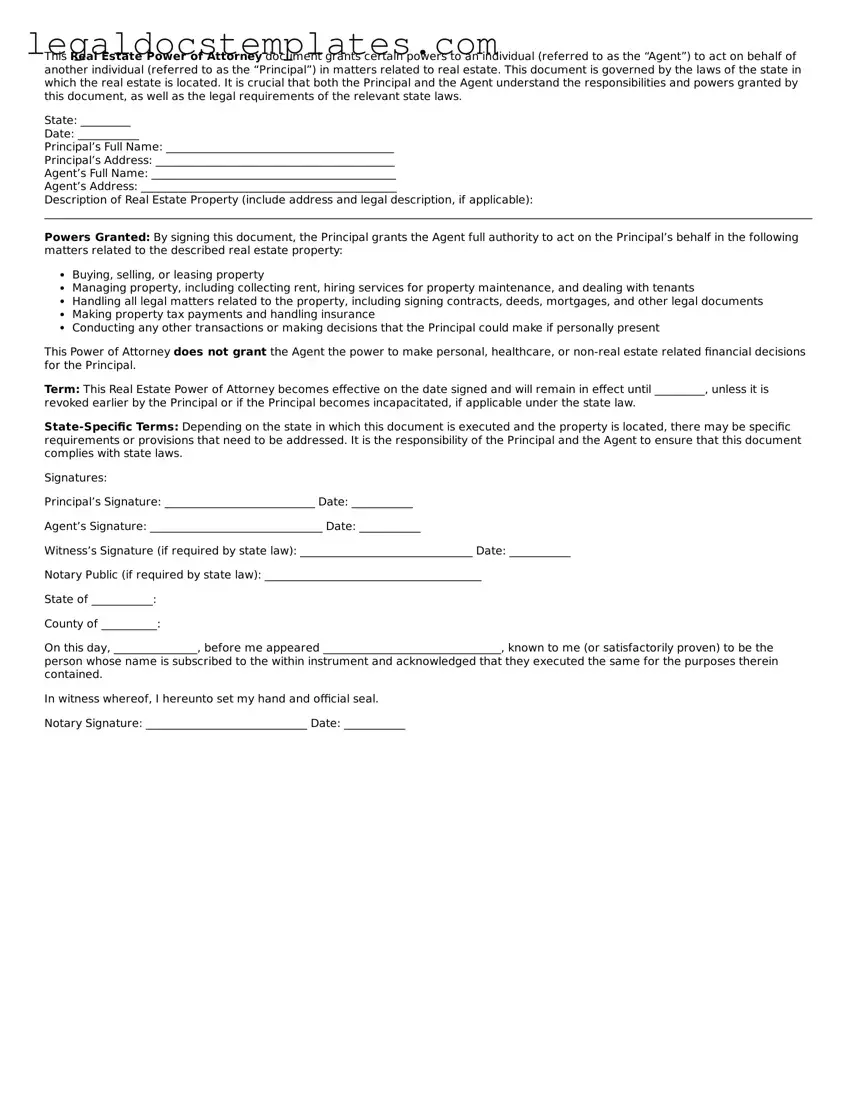This Real Estate Power of Attorney document grants certain powers to an individual (referred to as the “Agent”) to act on behalf of another individual (referred to as the “Principal”) in matters related to real estate. This document is governed by the laws of the state in which the real estate is located. It is crucial that both the Principal and the Agent understand the responsibilities and powers granted by this document, as well as the legal requirements of the relevant state laws.
State: _________
Date: ___________
Principal’s Full Name: _________________________________________
Principal’s Address: ___________________________________________
Agent’s Full Name: ____________________________________________
Agent’s Address: ______________________________________________
Description of Real Estate Property (include address and legal description, if applicable): ____________________________________________________________________________________________________________________________________________
Powers Granted: By signing this document, the Principal grants the Agent full authority to act on the Principal’s behalf in the following matters related to the described real estate property:
- Buying, selling, or leasing property
- Managing property, including collecting rent, hiring services for property maintenance, and dealing with tenants
- Handling all legal matters related to the property, including signing contracts, deeds, mortgages, and other legal documents
- Making property tax payments and handling insurance
- Conducting any other transactions or making decisions that the Principal could make if personally present
This Power of Attorney does not grant the Agent the power to make personal, healthcare, or non-real estate related financial decisions for the Principal.
Term: This Real Estate Power of Attorney becomes effective on the date signed and will remain in effect until _________, unless it is revoked earlier by the Principal or if the Principal becomes incapacitated, if applicable under the state law.
State-Specific Terms: Depending on the state in which this document is executed and the property is located, there may be specific requirements or provisions that need to be addressed. It is the responsibility of the Principal and the Agent to ensure that this document complies with state laws.
Signatures:
Principal’s Signature: ___________________________ Date: ___________
Agent’s Signature: _______________________________ Date: ___________
Witness’s Signature (if required by state law): _______________________________ Date: ___________
Notary Public (if required by state law): _______________________________________
State of ___________:
County of __________:
On this day, _______________, before me appeared ________________________________, known to me (or satisfactorily proven) to be the person whose name is subscribed to the within instrument and acknowledged that they executed the same for the purposes therein contained.
In witness whereof, I hereunto set my hand and official seal.
Notary Signature: _____________________________ Date: ___________

